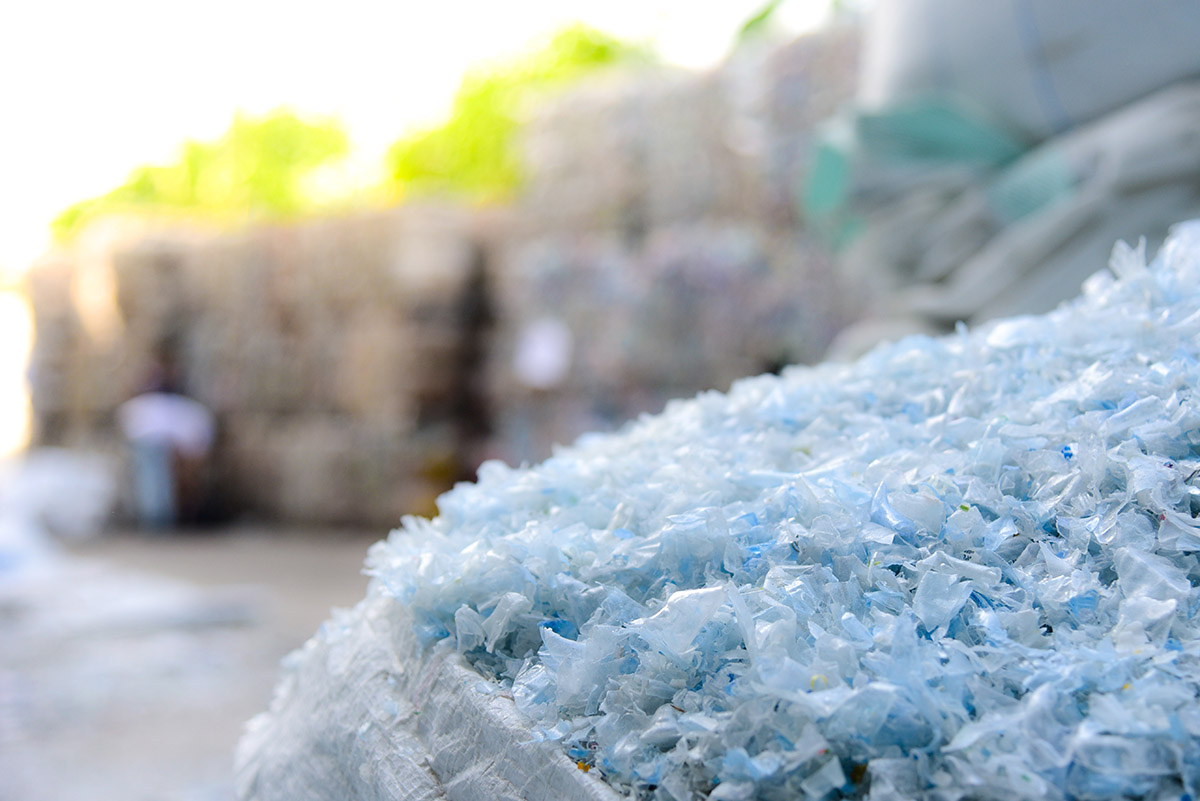
A report from the Ocean Conservancy pushes for recycled-content minimum legislation. | RecycleMan/Shutterstock
A report from the Ocean Conservancy calls for minimum-recycled-content standards to be increased over time, backed by robust enforcement and stiff penalties for non-compliance.
The report, “Recommendations for Recycled Content: Requirements for Plastic Goods and Packaging,” was commissioned by nonprofit Ocean Conservancy and prepared by consulting firm Resource Recycling Systems (RRS).
The document said that minimum-recycled-content requirements are necessary to move toward a circular economy and address plastic pollution.
“Mandatory minimum recycled content requirements should be established through a legal framework that drives technology and markets to achieve the economic, environmental and community benefits of using recycled content, and that fosters continual improvement through increasing requirements over time,” the report said.
Many states have introduced or passed minimum-recycled-content requirements in recent years, and there has been some federal consideration, as well. Connecticut, Maine, Washington, New Jersey, California and New York saw minimum-recycled-content requirements language passed or introduced recently, both as standalone bills or as part of extended producer responsibility bills.
Different organizations, including the American Chemistry Council, have also called for such legislation.
The Ocean Conservancy report says legislation should lay out which items are covered and exempt; stipulate the use of PCR content, as opposed to post-industrial or pre-consumer content; increase content levels over time to allow for growth of supply; allow for averaged recycled content across a company’s product portfolio; and use existing systems to document claims and certify recycled content.
The authors also suggested that waivers should only be available when supply is inadequate or in the case of technical issues, but the waivers “must be time limited and require robust justification.”
Annual federal reporting of the weights, percentages and flows of PCR and virgin resin should also be required, the report said, and “enforcement and penalties must be vigorously implemented to incentivize compliance.”
And while the report said chemical recycling “has the potential to remove several of the technical challenges that limit mechanical recycling,” it has yet to be proven at scale, faces the same supply-side challenges as mechanical recycling and “raises human and environmental health concerns.”
“Thus it cannot be seen as a quick-fix to our recycling system,” the authors concluded on chemical recycling.
Chemical recycling generally refers to a wide array of processes that use heat, pressure and solvents to break down the molecular chains of polymers into liquids or gasses that can then be processed into fuels, oils, waxes, new plastics or other chemical products.
Minimum percentages under several different scenarios were also suggested, with increasing levels that topped out between 2040 and 2050. Assuming significant growth in recycling collection and modest technological innovation, the document favored having minimum percentages top out at between 30% and 40% for PET bottles and HDPE bottles, between 30% and 35% for PET thermoforms, and between 25% and 30% for PP packaging.
However, if minimum content could be paired with national supply-side policy such as extended producer responsibility or bottle deposit laws, and more technical innovation occurs, the report suggested having the minimum-content levels top out at 55% to 60% for PET bottles, between 36% and 45% for PET thermoforms, between 40% and 50% for HDPE bottles, and between 30% and 35% for PP packaging.
“Our goal with this report is to demonstrate that minimum recycled content mandates are technically and economically feasible in the U.S. today and can be scaled up over time to reduce our dependence on virgin plastics,” it said.
However, the authors stipulated that it “will take time and significant effort to scale up recycled content” and even the most ambitious scenario the report explored would not achieve a fully circular economy.
More stories about research
- New report explores the future of CPG packaging goals
- RIT researchers develop AI-based textile recycling system
- Researchers: Effective plastic treaty requires production cuts